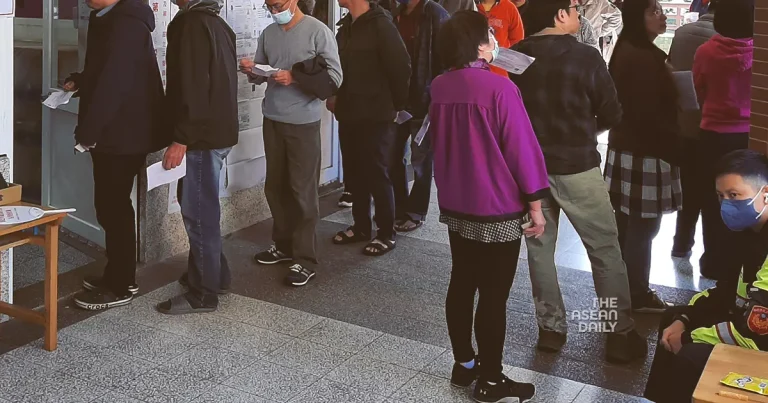13-1-2024 (TAIPEI) Taiwanese citizens are casting their votes today in the highly significant presidential election, which will determine the future course of cross-strait relations with China and have broader regional and global implications. With voting commencing at 8 am local time and concluding at 4 pm, the results are expected to be announced by the end of the day.
The presidential race features three main contenders. Leading the pack is Mr. Lai Ching-te from the ruling Democratic Progressive Party (DPP), followed closely by Mr. Hou Yu-ih from the Kuomintang (KMT). Dr. Ko Wen-je of the Taiwan People’s Party (TPP) is also in the running, although he currently trails behind in opinion polls. It is worth noting that while the presidential contest remains crucial, the balance of power in the legislature could be swayed by the TPP.
This election marks the end of President Tsai Ing-wen’s two consecutive terms, rendering her ineligible for re-election. The candidates have been diligently campaigning over the past 28 days, conducting rallies and participating in televised debates, all in an effort to win the hearts, minds, and, most importantly, the votes of the Taiwanese electorate.
Throughout the campaign, several key issues have emerged as focal points for the candidates. One prominent concern is the escalating cross-strait tensions, as China intensifies its military and economic pressure on Taiwan. Beijing has framed the election as a choice between war and peace across the Taiwan Strait, as well as between prosperity and recession. While China has not publicly endorsed any specific candidate, it has made it clear who it does not support, labeling Mr. Lai of the DPP as a “separatist” and “troublemaker.” It is worth noting that Mr. Lai has distanced himself from his previous outspoken support for Taiwan independence and has emphasized maintaining the status quo, underscoring the idea that Taiwan’s future should be decided by its people. Mr. Hou of the KMT, on the other hand, has echoed Beijing’s warnings, framing the election as a choice between war and peace with China. He has expressed his willingness to restart talks with China, beginning with lower-level cultural exchanges, while rejecting Beijing’s “one country, two systems” model. Meanwhile, Dr. Ko of the TPP has advocated for a “middle way” between the DPP and KMT regarding cross-strait policy, albeit without providing detailed plans.
Security has also emerged as a crucial issue, particularly given China’s increasing assertiveness. A recent incident involving a Chinese satellite launch triggered alarm in Taiwan, prompting authorities to issue an emergency message to the public. The three presidential candidates have outlined their defense policies, with a common commitment to maintaining defense spending. Dr. Ko of the TPP has gone a step further, proposing an increase in the defense budget to 3% of Taiwan’s gross domestic product. Notably, Taiwan is set to witness a record-high defense budget of NT$606.8 billion (US$19.1 billion) this year, accounting for approximately 2.5% of its GDP. All candidates also share the consensus on extending military conscription to one year, a move that has garnered broad public support. However, concerns about training, equipment, and the correlation between longer military service and national defense strength have been raised.
Addressing livelihood issues is another key aspect of this election. Taiwanese citizens currently face challenges such as high property prices and stagnant wages. The candidates’ ability to provide relief and effectively tackle these cost-of-living concerns has drawn significant attention.
The outcome of this election holds considerable significance, not only for the future of Taiwan but also for the broader dynamics in the region and the Sino-US rivalry. With close to 20 million eligible voters, the world will be closely watching as the ballots are counted and the next leader of Taiwan is determined.




